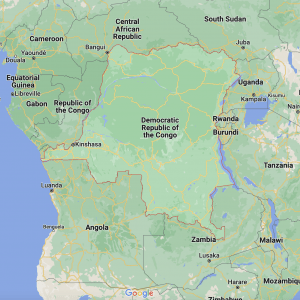Malaysians vote in six state elections seen as referendum on Anwar
Kuala Lumpur, Malaysia — AFP
Malaysians in six states went to the polls on August 12 to vote for state assembly members in elections widely seen as a barometer of support for Prime Minister Anwar Ibrahim’s unity government.
While the elections are unlikely to immediately affect Anwar’s current two-thirds majority in parliament, analysts said his hold on power could weaken if his Pakatan Harapan coalition suffers a setback, especially among Malay Muslim voters in the largely Islamic Southeast Asian nation.
Polls closed at 6:00 pm.
Voter turnout was between 56-70 percent of the more than 9.7 million registered voters as of 4:00 pm, the Election Commission said.
Of the six, Anwar’s coalition currently holds Negeri Sembilan and the country’s two richest states: Selangor, home of Malaysia’s biggest port, and Penang, which hosts a thriving semiconductor industry.
The other three states are controlled by an influential rural-based Malay Muslim alliance led by former prime minister Muhyiddin Yassin.
Malays account for two-thirds of Malaysia’s 33 million population, which includes large ethnic Chinese and Indian minorities.
Anwar, in an appeal on Facebook on the eve of the polls, urged voters to give his coalition a “clear and strong mandate… to bring a better agenda for all races in this country”.
The 76-year-old, who had campaigned on a promise of reforms in last year’s general elections, is pushing for a more inclusive society where all racial and ethnic groups are allowed greater participation.
‘Dire’ consequences
Opposition coalition Perikatan National has expressed confidence in making further inroads.
One key Perikatan member is the Malaysian Islamic Party, or PAS, which aims to establish a state based on the laws and values of Islam — the religion of the majority Muslim Malay population.
Having won 49 parliamentary seats — or more than 20 percent of the 222-member parliament last year — PAS has in recent months stepped up racial and religious rhetoric to shore up support.
“I feel quite excited and I hope Perikatan can win again in this area,” said housewife Jamilah Baharin, 48, who voted in Kedah state, a PAS stronghold.
PAS spokesman Khairil Nizam Khirudin told the media that Anwar “promised a lot but has not delivered”.
James Chin, a Malaysia expert at the University of Tasmania in Australia, said the election was being watched for the level of support reformist Anwar draws among the predominant Malay Muslim group.
He warned of “dire” consequences if Anwar loses even a single state.
“The first direct implication is that he cannot undertake any major reforms or fundamental structural reforms to the economy or to politics,” Chin said.
A loss could prompt MPs to shift allegiances over the next 12 months, “putting a question mark about the future of Anwar as the prime minister”, Chin added.
A win, however, would give Anwar “enough political capital to carry out real reforms”, Chin said.
Anwar became prime minister last November following a political impasse that saw his party win the most seats in the general election but fall short of the outright majority needed to form a government.
That forced him into an alliance with former foes in the United Malays National Organisation to secure a two-thirds parliamentary majority and approval from Malaysia’s king to form a “unity government”.












